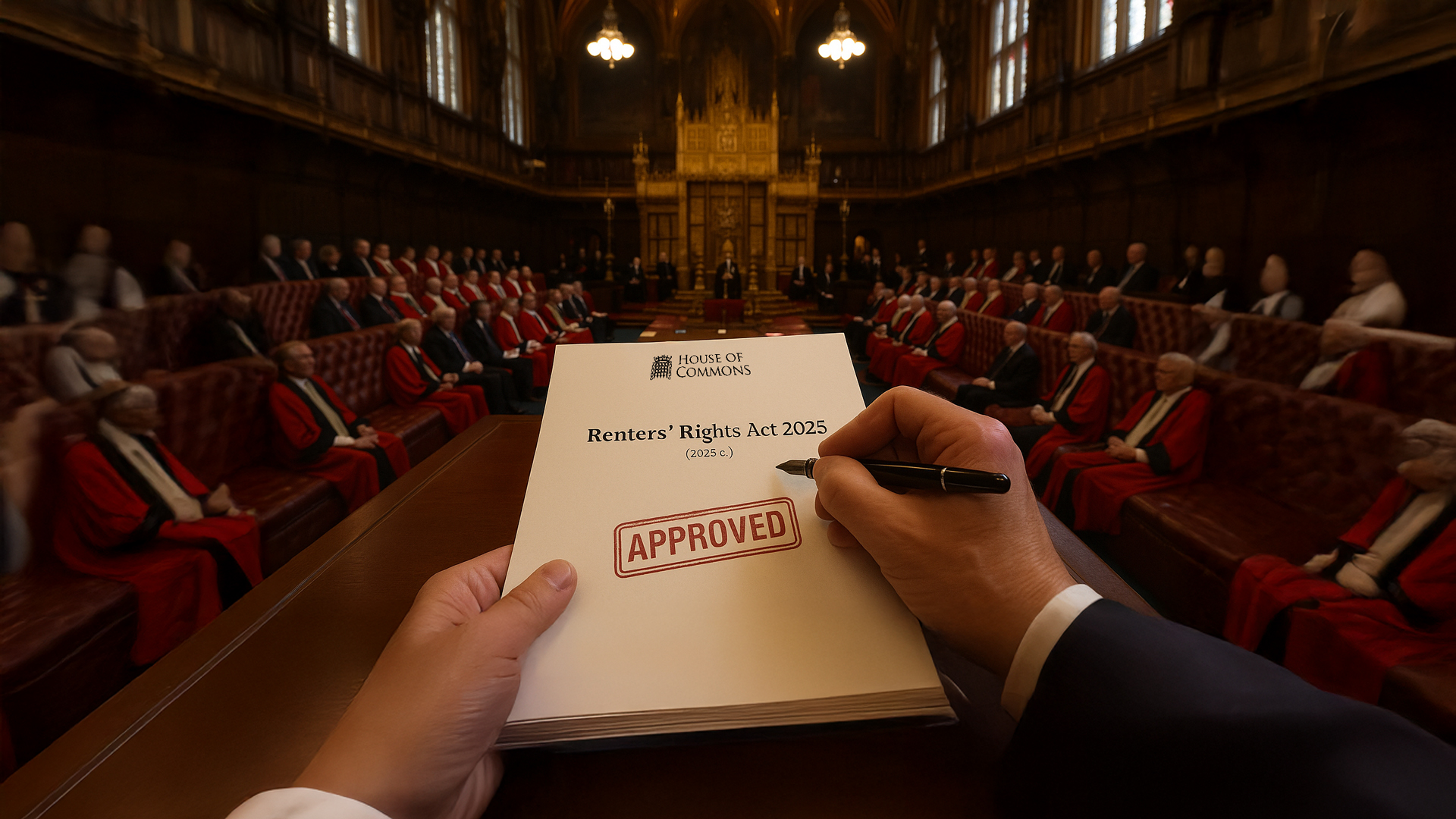The Renters’ Rights Bill has passed both Houses of Parliament and will shortly be enacted as the Renters’ Rights Act 2025 (“Act”). This confirms an imminent and material reform of the private rented sector and sets out significant changes for landlords, tenants and the professionals who advise and work with them.
Abolition of Section 21
The Act will abolish Section 21 ‘no fault’ evictions. Once implemented (this is yet to be confirmed, but expected to be early 2026), landlords will only be able to regain possession if they can satisfy the revised Section 8 grounds. Whether a tenancy is new or existing, the former ‘no fault’ possession route will no longer be available. Tenants will benefit from a protected 12-month period during which eviction simply to sell or to move in will be unavailable. Landlords who rely on turnover to manage portfolios will need to reassess their exit strategies and operational planning.
Notice Periods
Notice periods for possession based on rental arrears will increase. The minimum notice landlords must give before commencing possession proceedings will double to four weeks. Landlords will be able to seek possession for rent arrears only once arrears reach an increased minimum threshold of three months.
Rent Increases and Dispute Resolution
The Act prescribes a statutory procedure for rent increases. Tenants may apply to the First-tier Tribunal where they consider a proposed increase is unreasonable. The Act introduces enhanced regulatory oversight by requiring every landlord to register on a dedicated Private Rented Sector Database and establishes an Ombudsman to provide tenants with a less adversarial route for resolving disputes.
Awaab’s Law
Awaab’s Law will impose a positive obligation on landlords to address hazards such as damp and mould promptly. Failure to remedy hazards may attract civil penalties and increased enforcement action.
Pets
Tenants will have the right to request permission to keep a pet, and landlords can only refuse with good reason. A landlord can reasonably require the tenant to take out pet insurance. These provisions should be reflected in all new tenancy agreements.
Bidding, short‑term lets and Enforcement
The Act will prohibit rental bidding to foster transparent and fair lettings, although most short‑term lettings will fall outside this prohibition. Local authorities will gain strengthened enforcement powers, including the ability to levy penalties for breaches of landlord obligations.
Recommendations
Given the imminent changes, it is vitally important that landlords (and their agents) urgently review their portfolios and take advice on redrafting standard tenancy agreements, meeting new compliance and regulatory requirements, and updating staff training and operational procedures.
Tenants should scrutinise rent increase notices, retain comprehensive records of all communications with landlords and managing agents and obtain timely legal advice where persistent damp or mould arises or where possession proceedings are threatened.
Conclusion
The Act marks a fundamental overhaul of rental law, delivering greater statutory protections for tenants and substantially expanded duties and compliance obligations for landlords.
To discuss any of the points above or to obtain advice on property matters, please contact Daniel Blake, a Property Litigation Partner in our Dispute Resolution team, or fill out the form below.









